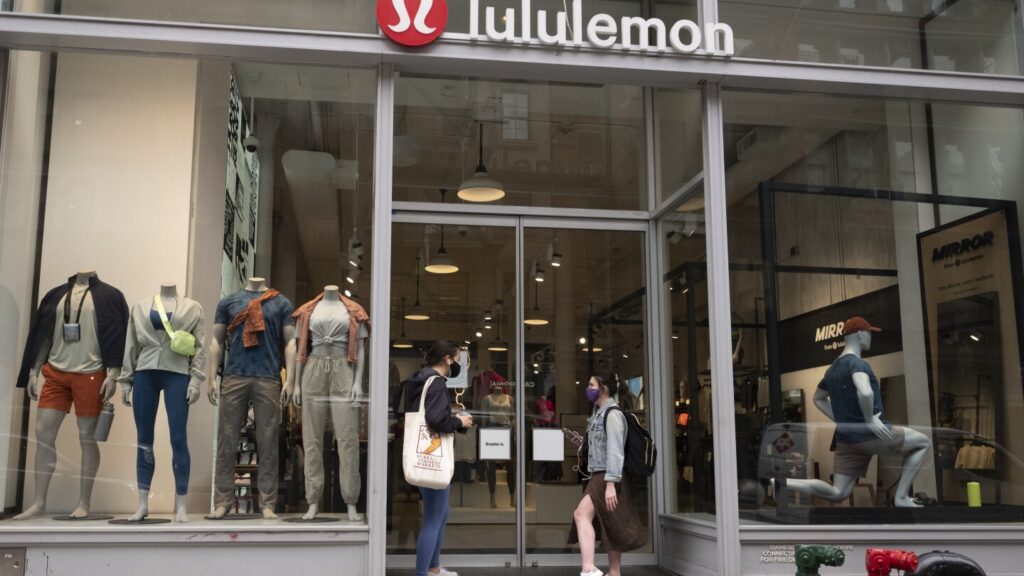
NEW YORK (AP) — Fashion “dupes,” or affordable imitations of high-end clothing and accessories, are becoming increasingly prevalent, sparking legal battles among businesses. In a recent case, Lululemon filed a lawsuit against Costco on Friday, accusing the wholesale giant of selling cheaper replicas of its popular athleisure apparel.
The lawsuit highlights a growing trend in the retail industry, where social media is amplifying the culture of dupe shopping. Influencers are guiding their followers to purchase these knockoffs, offering a taste of luxury at a fraction of the price. For instance, while Hermès’ fuzzy slippers cost $1,000, Target offers a similar version for just $15. Similarly, a Bottega Veneta hobo bag priced at $2,800 has a $99 counterpart available on Quince, an online fashion startup.
The Rise of Dupes in Fashion
The concept of fashion dupes is not new. For years, companies have provided consumers with cheaper alternatives to expensive designer labels, often through house or generic brands. Unlike counterfeit products that illegally use a brand’s trademark, dupes merely resemble certain features and are generally considered legitimate. They can even increase awareness of the original items.
The recent surge in dupes, particularly in fashion, indicates a shift in consumer behavior. Shoppers are increasingly seeking the look and feel of luxury without the hefty price tag. Last year, Walmart created a buzz by selling a leather bag resembling Hermès’ iconic Birkin bag for $78, compared to the original’s price range of $9,000 to hundreds of thousands of dollars. Influencers dubbed it the “wirkin,” and similar products were listed by other suppliers on Walmart’s site.
Legal Challenges and Intellectual Property
Despite their popularity, these look-alikes often frustrate the original brands. Following the viral success of the “wirkin,” Hermès Executive Chairman Axel Dumas expressed his displeasure, stating, “Making a copy like this is quite detestable.” However, he acknowledged the consumer desire for the Birkin style and noted the clear difference in quality between the original and the dupe.
According to Alexandra Roberts, a professor of law and media at Northeastern University, the term “dupe” itself does not clarify legality. Dupes can enter murky legal waters, particularly concerning copyright and trademark infringement, if false claims are made about the duplicate or the original product. “With fashion, in particular, we’re going to get into some thorny questions,” Roberts explained, pointing out the complexities of intellectual property rights and their enforceability.
“The basic reality is we always put our E.l.f. twist on it,” said E.l.f. CEO Tarang Amin, after winning a lawsuit against Benefit over similar mascara products.
Lululemon’s Legal Battle with Costco
In its lawsuit, Lululemon accused Costco of “unlawfully trading” on its reputation, aiming to enforce its intellectual property against retailers opting to copy rather than compete. The lawsuit claims Costco is selling duplicates of Lululemon’s popular items, such as Scuba hoodies, Define jackets, and ABC pants. One alleged duplicate, the Hi-Tec Men’s Scuba Full Zip, was listed on Costco’s website for $19.97.
Roberts expressed skepticism about some of Lululemon’s claims, particularly regarding design patents, which can be challenging to defend. She highlighted Lululemon’s assertion of common law trade dress over a specific design feature in the ABC pants as potentially weak. “My first reaction as a trademark expert is that looks pretty functional,” she noted, emphasizing that functional elements are not protected under trademark law.
However, Roberts acknowledged that Lululemon’s claims regarding consumer confusion might hold weight. The company alleges that Costco uses manufacturers of popular branded products for its Kirkland brand, potentially misleading consumers into believing they are purchasing authentic items. Yet, most products mentioned in the complaint were not sold under the Kirkland brand, which could weaken Lululemon’s argument.
Looking Ahead
This lawsuit is not Lululemon’s first encounter with alleged knockoffs. In 2021, the company sued Peloton over “copycat products” in its clothing lines, a dispute that eventually led to a partnership. As the legal landscape around fashion dupes continues to evolve, companies must navigate complex intellectual property issues to protect their brands.
Costco has yet to comment on the lawsuit. The outcome of this case could have significant implications for the retail industry, influencing how brands approach the growing trend of fashion dupes and the legal strategies they employ to safeguard their products.
— AP Business Writer Michelle Chapman contributed to this report.




